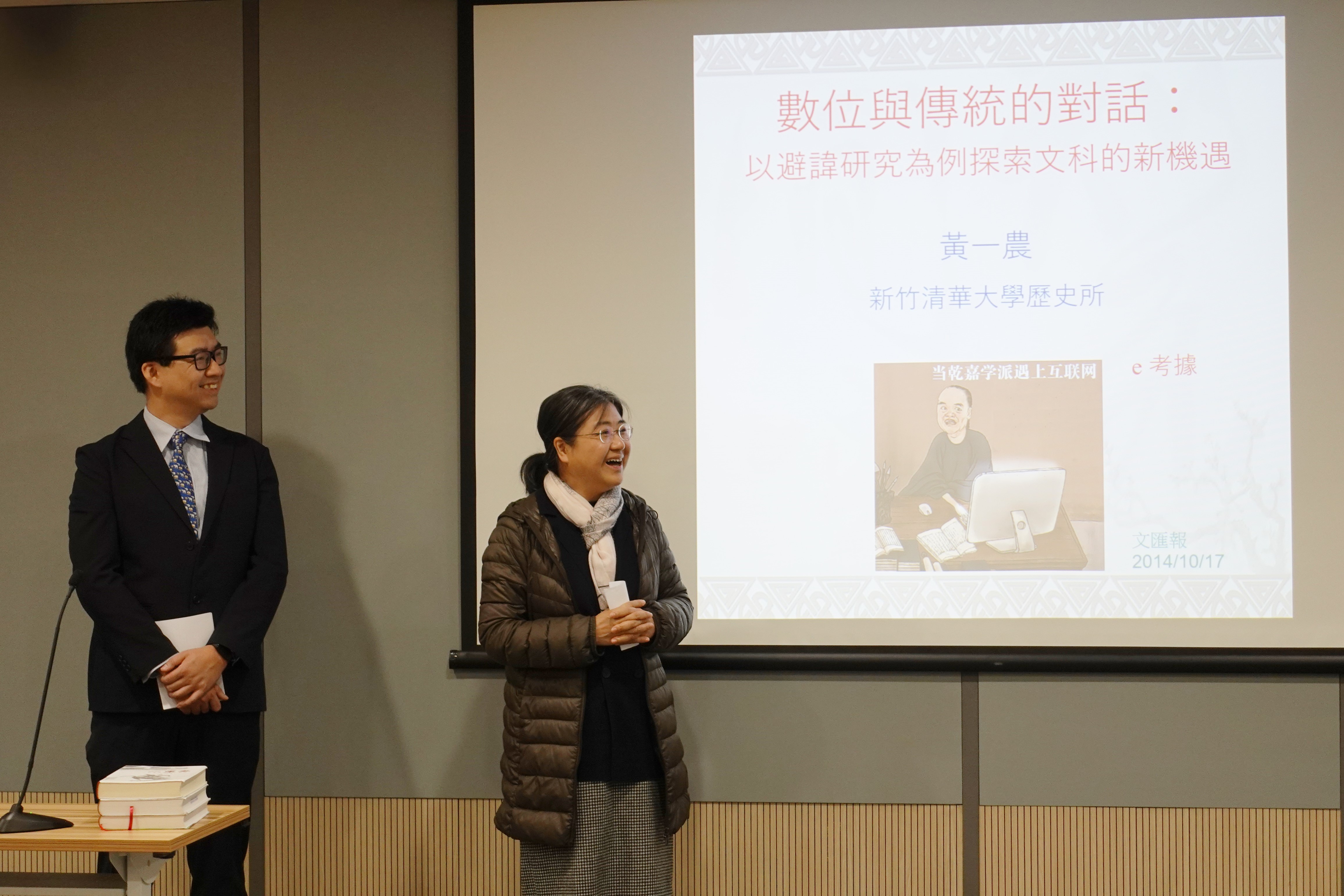On 27 February 2024, the Digital Society research cluster of CityU’s College of Liberal Arts and Social Sciences (CLASS) and CityU’s Department of Chinese and History (CAH) co-hosted a seminar featuring Professor HUANG Yi-long, Academician of Academia Sinica, as the speaker. The event focused on the theme of “Bridging the Digital and Traditional: New Opportunities in the Humanities via Naming Taboo Research”.
Prof Huang is currently Distinguished Chair Professor at National Tsing Hua University, Hsinchu. With a PhD in astrophysics from Columbia University, he contributes his rich interdisciplinary background to the discussion.
 Photo: Prof Ching May-bo (right), Head of CAH, and Prof Tsui Lik-hang, the CLASS Digital Society research cluster convenor, introduce the seminar topic before it begins.
Photo: Prof Ching May-bo (right), Head of CAH, and Prof Tsui Lik-hang, the CLASS Digital Society research cluster convenor, introduce the seminar topic before it begins. Professor CHING May-bo, Head of CAH, first delivered the opening speech to introduce the speaker’s background. Professor TSUI Lik-hang, Assistant Professor of CAH and the CLASS Digital Society research cluster convenor, later chaired the seminar. It attracted diverse participants, including scholars and students from CityU and other institutions and professionals from the cultural industry.
During the seminar, Prof Huang presented compelling evidence regarding the omission of strokes in the Chinese character “胤” (yìn), found in thousands of Kangxi Dynasty woodblock prints. With the rigorous approach of “E-evidential research”, he argued that these deliberate omissions were acts of deference towards Crown Prince Yincheng胤礽 [Yunreng] (1674-1725), a time without official rules of naming taboos associated with him.
Apart from illustrating historical and cultural practices, his analysis showed the potential of big data to uncover discoveries in the humanities field. It underscored the importance for future scholars to embrace the challenges and synergies that arise from the convergence of digital and traditional research methods.
Prof Huang also elaborated further on the concept of “E-evidential research”. This approach extends beyond mere database searches or electronic methods for textual analysis. Instead, it should be understood as a means to conduct textual research in the digital era, leveraging technological advancements and big data. Technologies such as digitisation, large-scale databases in the humanities domain, OCR technology, and the sharing of digital libraries have made extensive data collection feasible. In light of these developments, the speaker reminded researchers to cultivate a heightened sense of inquiry. They should pose incisive questions and translate them into concrete research procedures using digital resources. It is about the capacity to answer them with precision. This approach, he emphasised, is crucial for navigating the unprecedented challenges presented by the digital revolution in humanistic studies.
Following Prof Huang’s presentation, the Q&A segment sparked lively interaction among the attendees, who eagerly discussed the practical challenges of using digital tools in research. Prof Huang shared some examples of the resources he used, highlighting the practical applications of digital tools. At the end, the speaker encouraged the attendees to integrate such technologies into their own scholarly pursuits when the time comes.
Cover photo: Prof Huang Yi-long demonstrates how digital tools enhance the inquiry process in humanities research at a seminar.
